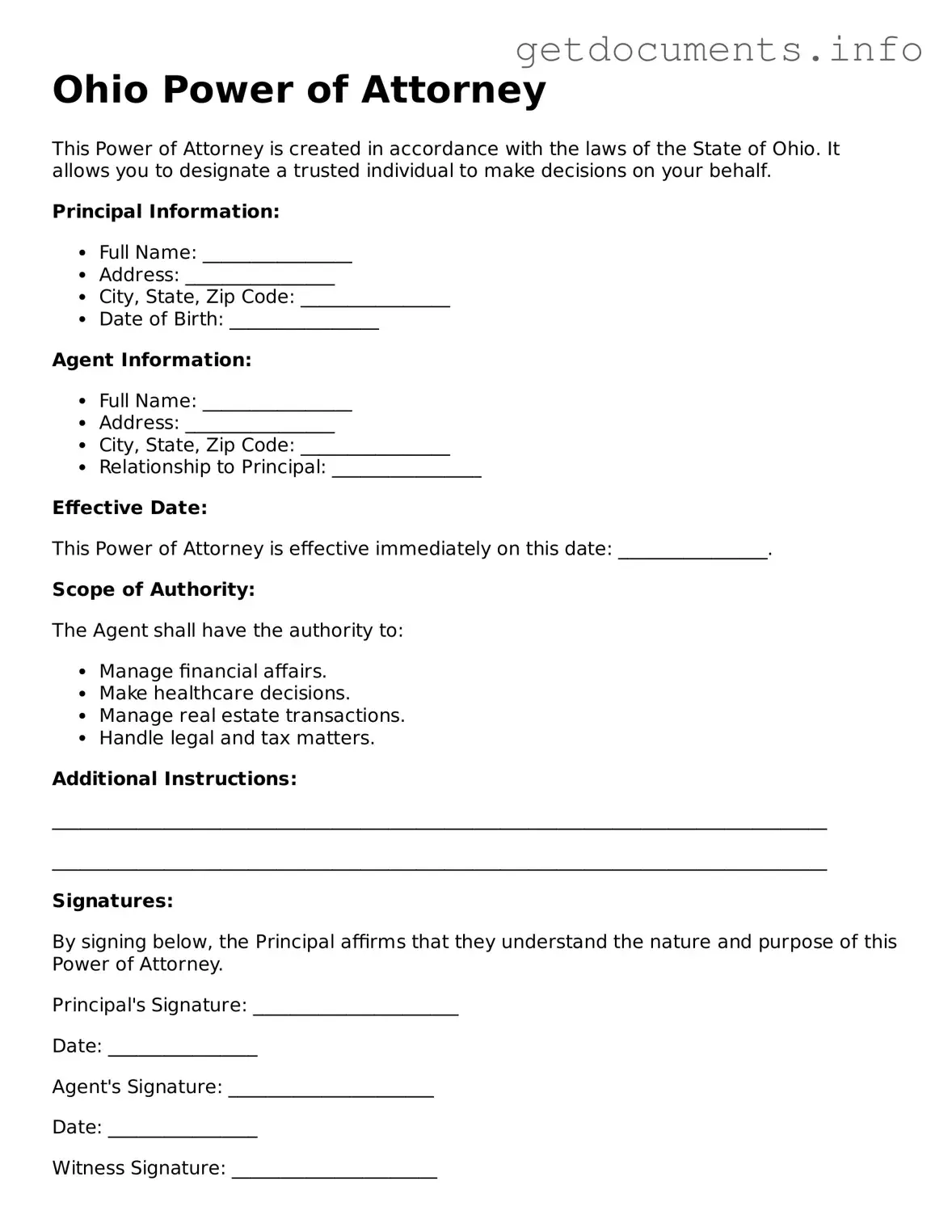Free Power of Attorney Template for Ohio
The Ohio Power of Attorney form is a legal document that allows one person to grant another the authority to make decisions on their behalf. This form can cover a wide range of financial and healthcare decisions, ensuring that your wishes are respected even if you are unable to communicate them. If you need to appoint someone to act for you, consider filling out the form by clicking the button below.
Access Power of Attorney Editor

Free Power of Attorney Template for Ohio
Access Power of Attorney Editor
Got places to be? Complete the form fast
Fill out Power of Attorney online and avoid printing or scanning.
Access Power of Attorney Editor
or
⇩ PDF File
